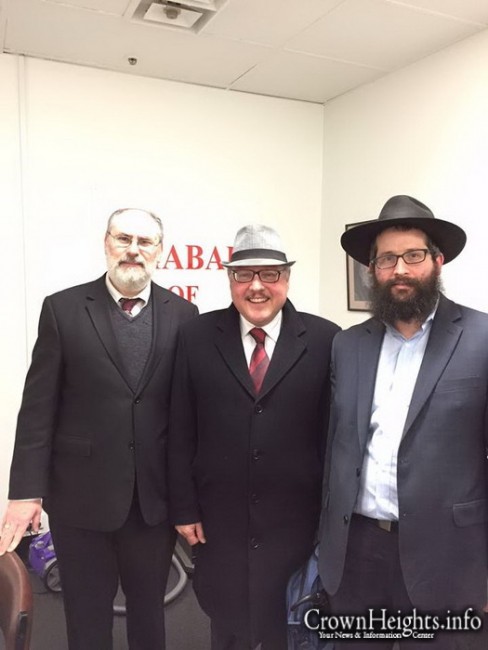
Victoria Supreme Court Judge Lectures at Chabad
According to Halacha, all disputes between two Jews which cannot be settled amicably without adjudication from an outside party must be decided by a Beth Din and not by a court of law, unless leave is given to go to court by a Beth Din. For an Orthodox Jew, therefore, the choice between going to court and going to a Beit Din would be moot.
On the other hand, when dealing with wills, probate, property, trusts and corporations, one would have to go to court in order to ensure that the orders were properly enforced.
Justice Michael Sifris, a Trials Division Justice at the Supreme Court of Victoria, presented considerations that a person should take into account if they feel that they do have a choice. When does it make more sense to go to court and when is a Beth Din a sensible alternative?
From the perspective of Australian or Victorian law, having a dispute adjudicated by a Beth Din is a form of arbitration. Arbitration has some significant advantages over litigation in a court: it is less formal, quicker and possibly more cost effective, private and more flexible. The big drawback is that the stress on the finality of the decision in an arbitration means that an arbitrator’s decision is hard to appeal. A decision can be reviewed by a court but only on very narrow grounds, such as misconduct on behalf of the arbitrator, collusion, fraud or a claim of duress in entering the arbitration agreement.
In choosing a Beth Din, therefore, you have to be aware that you cannot appeal on the merits – you cannot get the Beth Din’s decision overturned because you did not like how they interpreted the facts.
A Beth Din is also likely to look at the case in a wider context in an attempt to determine justice whereas a court will look at the evidence at hand in the particular case and decide it narrowly according to the law. This may also influence one’s decision as to where to go.
In employment matters, if you want to ensure that all disputes are adjudicated by a Beth Din, it is important that this be directly stipulated in the employment agreement. Two cases involving disputes between rabbis and their congregations have clearly brought this out.
After the seminar, Justice Sifris stayed on and Davened Mincha with the attendees.


















DeClasse' Intellectual
The unanswered question: What if the Bes Din is unable to render a decision or its decision is not implemented willingly?